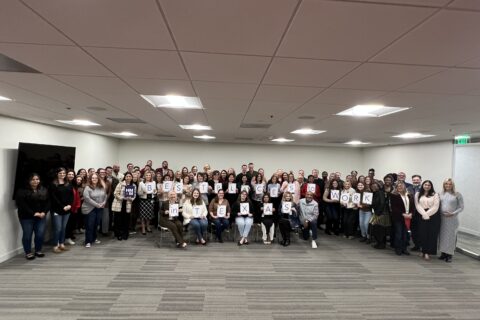The Coronavirus Aid and Economic Security Act (CARES Act) and the Families First Coronavirus Response Act (FFCRA) provides financial assistance and relief options for individuals and small businesses that have been impacted by the coronavirus pandemic in three ways: Economic Injury Disaster Loans, Paycheck Protection Program Loans, and payroll tax credits and deferrals. Below is a short summary of all three programs with links to further information.
If you have questions about these programs, please contact your HMM tax advisor.
EIDL – Economic Injury Disaster Loan (Previously existed, additional provisions under CARES Act)
The program provides for working capital loans up to a maximum of $2 million for 30 years at 3.75% and is intended to assist small businesses that have suffered the temporary loss of revenue due to a declared disaster. Due to COVID-19 being declared a disaster in all 50 states, the EIDL loans are available to businesses that have “suffered substantial economic injury” due to the coronavirus. Additionally, borrowers can request advance payments $10,000 of EIDL loans to be sent within 3 days of applying for the loan as emergency relief (a provision of the CARES Act). If the business is denied this loan, the advance payment does not have to be repaid.
The timeline from application to approval is dependent on volume, but a “typical timeline” for approval is 2-3 weeks and disbursement can take up to 5 days. As you can imagine, the volume of applicants will only be increasing, so the sooner you apply the better. The loan process is administered directly through the SBA either online or by paper. The application filing deadline is December 31, 2020.
For more in-depth information, please click here.
The key here is to apply as soon as possible, as the consensus is that the money will go fast.
Employers who receive EIDL loans may receive a PPP loan (see below), however, the purpose for the PPP loan must be different than the purpose for the EIDL loan (no “double dipping”).
PPP – Paycheck Protection Program (CARES Act)
The program provides for low interest loans for businesses (including non-profits, self-employed, and sole proprietors, and independent contractors with fewer than 500 employees (with certain exceptions) to pay payroll costs and other expenses. The loan amount is calculated as 2.5 times the average monthly payroll costs (capped at $100k for each employee) for the prior year or $10 million, whichever is lesser. The loan is intended to help small businesses cover their near-term operating expenses during the worst of the current crisis and to provide a strong incentive for employers to retain their employees during the COVID-19 crisis.
The loan can be fully forgiven if the following three conditions are met and the business applies for loan forgiveness through the lender:
- The business uses the loans to pay for qualified expenses, such as payroll, rent, and utilities;
- The business retains its employees at 75% of their prior year compensation;
- The business retains the same number of full-time employees as the prior year .
Certain exceptions will be made for businesses that have already laid off, furloughed, or reduced employees compensation if the employees employment and compensation is restored by April 26, 2020.
If the business also receives a $10,000 advance payment by applying for an EIDL loan and being declined, the $10,000 advance will not be forgiven.
Forgiveness will not be a taxable event.
The timeline from application to approval is dependent on volume and many banks are prioritizing existing customers ahead of new customers for processing these loans. The loan process is administered through private lenders that are authorized to issue SBA loans. Banks can start accepting applications on Friday, April 3rd for small businesses and sole proprietorships and Friday, April 10th for independent contractors and self-employed individuals. As you can imagine, the volume of applicants will be overwhelming, so the sooner you apply the better. The application filing deadline is June 30, 2020. Additional guidance will be issued by the SBA in the near future.
Businesses who receive a PPP loan cannot claim the employee retention credit (see “Payroll Tax Credits” below).
For more in-depth information, please click here.
Payroll Tax Credits and Deferrals
Employee Retention Credit (CARES Act)
The Employee Retention Credit supports employers that have experienced fully or partially suspended operations as a result of a government order limiting commerce, travel, or group meetings or employers that have experienced a greater than 50% reduction in quarterly receipts measured on a year over year basis by providing a payroll tax credit for 50% of wages paid by eligible employers to certain employees during the COVID-19 crisis. This credit is for the employer’s share of the Medicare tax (6.2%) equal to 50% of qualified wages paid to employees after March 12, 2020 and before January 1, 2021. The maximum credit per employee is $5,000 and the credit is refundable if the credit exceeds the payroll tax liability.
Businesses who receive a PPP loan under the CARES Act cannot claim the employee retention credit.
For more in-depth information, please click here.
Delay of Employer Payroll Taxes (CARES Act)
The CARES Act postponed the due dates for depositing the employer portion of payroll taxes and 50% of self-employment taxes attributable to wages paid through December 31, 2020. The payroll taxes will now be due in portions, 50% due on December 31, 2021 and 50% due on December 31, 2022.
The deferral is NOT available to a taxpayer who has debt forgiveness of a PPP loan under the CARES Act.
For more in-depth information, please click here.
The Families First Coronavirus Response Act (FFCRA Act)- EPSLA and Emergency FMLA Act
The FFCRA implemented the Emergency Paid Sick Leave Act (EPSLA) and temporarily expanded the FMLA to require certain small and medium-sized employers to provide workers with paid sick and family leave.
The FFCRA also establishes 100% government reimbursement (up to certain limits) in the form of tax credits to cover the costs of providing leave wages paid for the period between April 1, 2020 and December 31, 2020 and credits for payroll taxes paid after March 12, 2020 and before January 1, 2021.
For more in-depth information, please click here.
If you have questions about these programs, please contact your HMM tax advisor.
For more information check out HM&M’s COVID-19 Resources page.
HM&M COVID-19 ResourcesLatest Blog
DALLAS, TX – [February 21, 2025] –HM&M, a leading accounting and advisory firm, is proud to announce that ...
Updated February 14, 2025 A complex trust or estate may make an election under Internal Revenue Code Section ...
As this reminder was going to press, a Texas-based federal court issued a preliminary injunction prohibiting the federal ...
HM&M Updates
DALLAS, Dec. 11, 2024 – Springline Advisory, a trailblazing financial and business advisory firm, is proud to announce its partnership ...
Last month, Senior Manager, Pearl Balsara was invited to speak at the 2023 FPA DFW Annual Conference in ...
We are pleased to announce the winners of the 2022 HM&M Excellence Awards. Ronna Beemer, Keith Phillips, and ...









